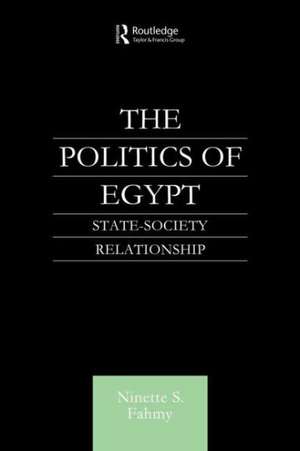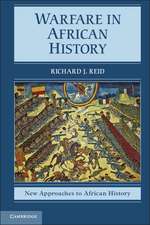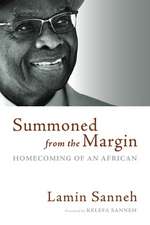The Politics of Egypt: State-Society Relationship
Autor Ninette S. Fahmyen Limba Engleză Paperback – 22 dec 2010
| Toate formatele și edițiile | Preț | Express |
|---|---|---|
| Paperback (1) | 416.44 lei 6-8 săpt. | |
| Taylor & Francis – 22 dec 2010 | 416.44 lei 6-8 săpt. | |
| Hardback (1) | 1005.80 lei 6-8 săpt. | |
| Taylor & Francis – 27 iun 2002 | 1005.80 lei 6-8 săpt. |
Preț: 416.44 lei
Nou
Puncte Express: 625
Preț estimativ în valută:
79.70€ • 82.33$ • 66.33£
79.70€ • 82.33$ • 66.33£
Carte tipărită la comandă
Livrare economică 25 martie-08 aprilie
Preluare comenzi: 021 569.72.76
Specificații
ISBN-13: 9780415612746
ISBN-10: 0415612748
Pagini: 326
Dimensiuni: 156 x 234 x 18 mm
Greutate: 0.46 kg
Ediția:1
Editura: Taylor & Francis
Colecția Routledge
Locul publicării:Oxford, United Kingdom
ISBN-10: 0415612748
Pagini: 326
Dimensiuni: 156 x 234 x 18 mm
Greutate: 0.46 kg
Ediția:1
Editura: Taylor & Francis
Colecția Routledge
Locul publicării:Oxford, United Kingdom
Public țintă
Postgraduate and UndergraduateNotă biografică
Dr Ninette Fahmy is a lecturer of Public Administration and Local Government at Sadat Academy for Management Sciences, and has taught Middle East politics in several other universities in Cairo as well as at the University of Exeter. She was Winner of the 2000/2001 Fulbright teaching and research award. Her current research interest is on the human rights of minority groups in the Middle East. She has published widely in both English and Arabic.
Cuprins
1. Theories of State and Society 2. The Historical Relationship between the State and the Peasants 3. The Constitutional and Legal System in Egypt and the Change to a Multi-Party System 4. Political Parties in Egypt 5. Egyptian Professional Associations 6. Labour and Business Organisations 7. The Local System in Egypt: A Blocked Avenue for Participation and Representation 8. The State, Peasant Politics and Development: The Inherent Dilemma 9. Tihna al-Gabal: A Case Study of a Village in Upper Egypt 10. Conclusion
Descriere
This books addresses two important dimensions of current concern to Middle Eastern scholars: firstly, the nature of the Egyptian state and society, and the interactive process between them, and secondly, how change leading to development can be initiated.





















